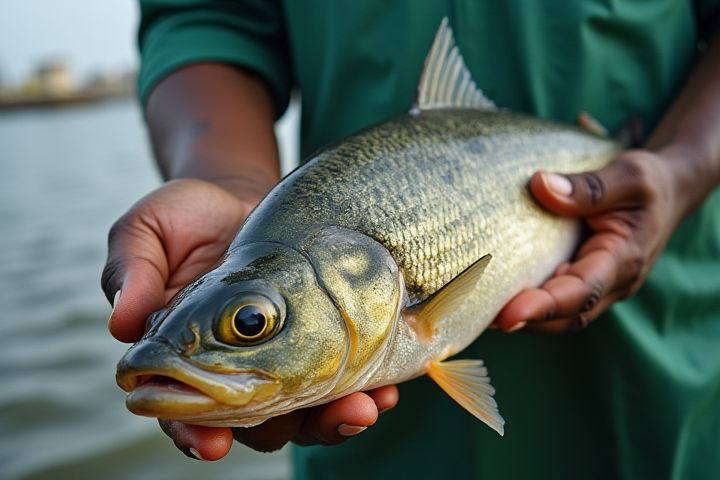
The fisheries industry in Nigeria plays a crucial role in providing food security, employment opportunities, and economic growth. With an estimated coastline of over 850 kilometers and numerous inland water bodies, Nigeria boasts abundant aquatic resources, including fish species such as tilapia, catfish, and assorted shellfish. The government promotes sustainable fishing practices and aquaculture to combat depletion of fish stocks and improve productivity. This sector significantly contributes to the livelihoods of millions, with both small-scale artisanal fisheries and large commercial enterprises operating side by side. You can leverage the growing demand for seafood not only locally but also for export, making investments in this industry potentially lucrative.
Aquaculture development
The fisheries industry in Nigeria is increasingly prioritizing aquaculture development as a vital strategy to enhance food security and increase fish production. With an estimated growth rate of 10% annually, aquaculture is becoming a key component of the nation's economic strategy, providing livelihoods for millions of Nigerians. The integration of innovative farming techniques and sustainable practices helps improve yield, reduce environmental impact, and ensure the long-term viability of fish stocks. By investing in modern hatcheries and feed production, Nigeria aims to meet the rising demand for fish, addressing both nutrition and economic growth effectively.
Tilapia and catfish dominance
The fisheries industry in Nigeria prominently features Tilapia and catfish, two species that are crucial for sustainable aquaculture and food security. Tilapia is favored for its fast growth and adaptability to various environments, while catfish is renowned for its high protein content and effective farmers' market presence. With increasing domestic demand, these species contribute significantly to the country's economy and the livelihood of local fish farmers. Enhancing aquaculture practices and maintaining fish health are vital for maximizing yields and promoting environmental sustainability in Nigeria's fisheries sector.
Artisanal fishing contribution
The fisheries industry in Nigeria significantly benefits from artisanal fishing, which constitutes a vital source of employment and food security for coastal communities. This small-scale fishing practice employs traditional techniques, enabling local fishers to harvest diverse species from rivers, lakes, and coastal waters. Artisanal fishing in Nigeria supports sustainable practices, contributing to the preservation of aquatic ecosystems and the livelihoods of over 2 million people. By prioritizing this sector, you can help promote local economies while ensuring a steady supply of fresh fish to meet domestic demand.
Niger Delta challenges
The fisheries industry in Nigeria, particularly in the Niger Delta region, faces significant challenges including environmental degradation, oil spills, and overfishing. These issues threaten the livelihoods of local fishers and impact aquatic biodiversity, decreasing fish stocks crucial for both local consumption and export. Sustainable practices and effective governance are essential to mitigate these challenges, ensuring the long-term viability of fisheries and protecting the ecosystems. Engaging local communities in conservation efforts can foster economic growth while preserving the rich aquatic resources of the Niger Delta.
Export market potential
The fisheries industry in Nigeria is increasingly focusing on the export market potential, driven by a growing global demand for seafood products. Key species like catfish, tilapia, and shrimp are at the forefront of this initiative, as they hold significant value for international buyers. Improved aquaculture practices and investments in supply chain logistics are enhancing the quality and sustainability of Nigerian fish products, making them more competitive in global markets. By tapping into this export potential, you can help bolster the local economy while promoting sustainable fishing practices.
Environmental sustainability issues
The fisheries industry in Nigeria is increasingly prioritizing environmental sustainability to combat overfishing and habitat degradation. Efforts include implementing sustainable fishing practices, enhancing regulatory frameworks, and promoting aquaculture to reduce pressure on wild fish stocks. Innovative programs are being introduced to educate local communities about the importance of biodiversity and ecosystem health. By investing in sustainable practices, the Nigerian fisheries sector aims not only to protect marine resources but also to ensure long-term economic benefits for fishermen and coastal communities.
Government regulations
The fisheries industry in Nigeria is significantly influenced by government regulations aimed at promoting sustainable practices and preserving marine resources. The National Fisheries Act outlines permissible fishing methods, aimed at preventing overfishing and protecting endangered species within Nigerian waters. Strict licensing requirements for fishing vessels and the establishment of marine protected areas ensure the ecological balance is maintained. By complying with these regulations, you contribute to the resilience of local ecosystems and support the economic stability of coastal communities dependent on fishing.
Fisheries training programs
The fisheries industry in Nigeria emphasizes comprehensive training programs aimed at enhancing skills and knowledge among fishery practitioners. These training initiatives often incorporate sustainable fishing practices, aquaculture techniques, and effective resource management to promote environmental stewardship. By investing in education for local communities, the sector fosters job creation and food security while boosting the economy. As a participant, you can gain valuable insights into modern technologies and best practices that drive success in Nigeria's vibrant fisheries landscape.
Technology adoption
The fisheries industry in Nigeria is increasingly adopting advanced technology to enhance production efficiency and sustainability. Innovations such as aquaculture management software, automated feeding systems, and water quality monitoring tools are revolutionizing fish farming practices. These tech-driven solutions improve yield rates and mitigate environmental impacts, addressing food security challenges in the region. As you engage with this evolving sector, consider the benefits that technology integration brings to both local economies and global seafood markets.
Post-harvest losses
The fisheries industry in Nigeria faces significant challenges related to post-harvest losses, which are primarily due to inadequate storage facilities and poor processing techniques. It is estimated that nearly 40% of fish caught in Nigeria may be lost after harvest, affecting food security and economic stability for local communities. Implementing better preservation methods, such as refrigeration and drying, can drastically reduce these losses and enhance the overall quality of fish products. By addressing these post-harvest issues, the Nigerian fisheries sector can improve profitability and contribute to sustainable livelihoods for millions of people.
